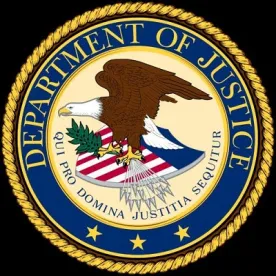Government contractors should be aware that the Department of Justice (DOJ) is taking new steps to scrutinize public procurement. The DOJ Antitrust Division’s creation of the Procurement Collusion Strike Force (PCSF) means that government procurement enforcement will be a significant focus for the agency moving forward. Although the new strike force builds on past government-wide efforts to detect illegal conduct in public procurement, recent activity from the Antitrust Division has raised the stakes. In light of this, government contractors should broaden their compliance programs to include antitrust so they can avoid heightened monetary penalties and possible prison terms for implicated employees.
I. What Happened
The DOJ’s Antitrust Division took another step to increase its attention on government procurement by focusing resources on a new task force designed to detect anticompetitive behavior amongst government contractors. On October 24, 2019, the Antitrust Division posted a notice in the Federal Register inviting public comment on its implementation of a “Procurement Collusion Strike Force” complaint form. The complaint form will facilitate “reporting by the public of complaints, concerns, and tips regarding potential antitrust crimes affecting government procurement, grants, and program funding.” While the DOJ’s unveiling of the PCSF is significant in itself, the event is just one of several pieces of activity from the Antitrust Division indicating that government contractors must begin to consider antitrust risk much more seriously.
II. Putting the Pieces Together: Why Government Contractors Should Prepare for Heightened Antitrust Scrutiny
The DOJ Antitrust Division’s recent activity relating to public procurement and criminal enforcement, along with other competition agencies throughout the world, suggests that government contractors will be under greater antitrust scrutiny and that compliance programs should be updated. The following factors support this view.
1. Procurement Prosecutions Continue
In our last article, we discussed three criminal antitrust indictments involving bid-rigging among government contractors. The government has continued to prosecute individuals involved in these matters. On September 24, 2019, the DOJ announced another guilty plea in its investigation of online auctions for surplus government equipment. Makan Delrahim, Assistant Attorney General for the Antitrust Division, noted that the “charge will not be the last in this investigation. The Department and its law enforcement partners are committed to prosecuting individuals who rig bids at government auctions.”
In addition to pursuing follow-on actions, the DOJ also investigated and prosecuted a new matter relating to a conspiracy to commit bribery and honest services fraud on a government-funded program designed to help communities in Detroit demolish vacant homes. The DOJ received guilty pleas and ordered all defendants to: (1) pay a criminal fine; (2) forfeit their gains as civil damages; and, (3) serve a prison term. When announcing the outcome, Assistant Attorney General Delrahaim stated that “[t]he Antitrust Division will aggressively pursue collusion that corrupts the government contracting process, especially where the illicitly shared bid information enables the government contractor to submit anti-competitive bids to the detriment of taxpayer-funded programs.”
2. Agency Guidance
Since 2018, Assistant Attorney General Delrahim has repeatedly emphasized the Division’s focus on aggressively investigating and prosecuting companies within the government procurement space. Along with the investigations discussed above, guidance directly from Division leaders indicates that government procurement will be an even stronger focus moving forward.
On October 25, 2019, the American Bar Association’s (ABA) Public Procurement Section held its annual Public Procurement Symposium, where an Antitrust Division representative acted as the lead panelist on a session titled “At the Intersection of Procurement and Collusion: Understanding Criminal Antitrust.” Moreover, the keynote speaker for the event was Richard Powers, Deputy Assistant Attorney General for Criminal Enforcement at the Antitrust Division. Powers also made it a point to explicitly identify public procurement as a priority for the Division’s criminal program when speaking at the ABA’s White Collar Conference just a few months prior.
3. Cartel Screening
While not utilized by the DOJ yet, “Cartel Screening” is gaining traction in other jurisdictions and could be used to increase scrutiny in public procurement. A cartel screen uses data and statistical analyses to detect and deter collusive activity. By identifying markets in which industry structure is potentially conducive to collusion, or where behavior is suspicious, screens can provide evidence to justify an investigation. In the past, agencies have been hesitant to adopt such mechanisms because they are costly and difficult to operate accurately. However, the increased availability of data and lower cost of analytical tools naturally paves the way for competition authorities to rely on new digital technologies to aid in future enforcement. Further, given that the government has access to all price and bidding data relating to public procurement, government contract work seems to be an ideal breeding ground for such an experiment.
4. Section 4(a) of the Clayton Act
The most critical piece of information out of the Antitrust Division relating to public procurement is the agency’s reinvigoration of Section 4(a) of the Clayton Act. The DOJ’s use of Section 4(a) significantly increases government contractors’ exposure for violating the antitrust laws. Section 4(a) is an enforcement tool that allows the government to recover treble damages for antitrust violations when the government itself is the victim. Treble damages are defined as three times the total amount of actual damages. Thus, if the Antitrust Division determined that a government contractor’s violation of the antitrust laws resulted in a $1 million overcharge to the government, the violator would be liable for $3 million in treble damages under Section 4(a) of the Clayton Act, as opposed to just the $1 million in actual damages. The Antitrust Division has typically forgone this remedy in public procurement actions up until now.
Consequently, government contractors found to have violated the antitrust laws are now potentially liable for:
-
A criminal fine up to $100 million;
-
Treble civil damages under Section 4(a) of the Clayton Act; and
-
Additional treble civil damages under the False Claims Act (FCA).
For example, three companies from the fuel supply investigation we discussed in our previous post pleaded guilty and were required to pay $82 million in criminal fines as well as $154 million in civil damages. The civil damages resolved claims under both the Clayton Act and the False Claims Act. Importantly, the $236 million-dollar total represented only a fraction of what the government could have pursued in damages. Assistant Attorney General Delrahim has made clear that the Division will continue to seek damages in this manner moving forward.
III. How to Mitigate Exposure: DOJ Changes Policy to Recognize Antitrust Compliance Programs
Despite increased scrutiny of the government procurement sector, the Antitrust Division has recently announced changes to reward companies that implement effective compliance programs. Specifically, on July 11, 2019, the Division announced that it will now credit companies for effective corporate antitrust compliance programs in making charging decisions and penalty recommendations. In conjunction with the announcement, the Division also released written guidance on the factors the agency will consider when evaluating compliance programs in criminal antitrust investigations. Most significantly, an effective antitrust compliance program may now lead to a Deferred Prosecution Agreement (DPA), where a company can avoid criminal prosecution in exchange for cooperating with the Division’s investigation. Thus, the Division’s decision to begin crediting effective compliance programs represents a significant opportunity for companies to mitigate millions of dollars of risk as well as avoid unfavorable publicity.
IV. Key Takeaway
The combination of increased scrutiny in government contracting, along with the DOJ’s recent recognition of effective antitrust compliance programs makes a strong business case for those in the government procurement space to review and revise current compliance programs. Auditing a company’s compliance program gives stakeholders increased security that they are taking the proper steps to mitigate exposure. McDermott’s antitrust and government procurement groups can help companies with all facets of their compliance programs as they relate to government contracting. Specifically, we can provide an individualized assessment of your business and assist you with developing, instituting and maintaining compliance programs so that your company can concentrate on what is most important: competing effectively in the marketplace.
John Ceccio, a law clerk in our Washington, DC, office, also contributed to this article.




 />i
/>i

